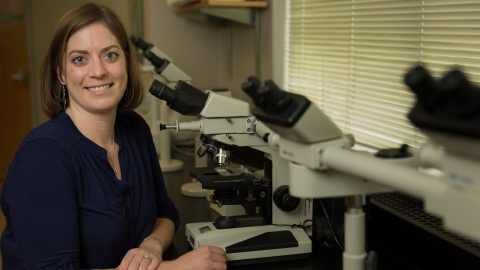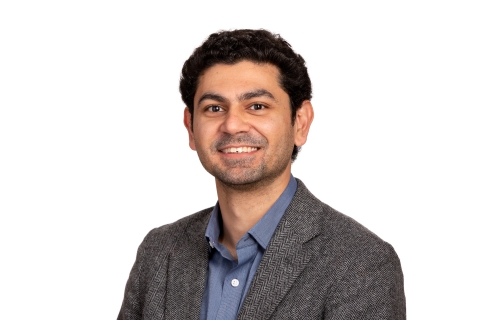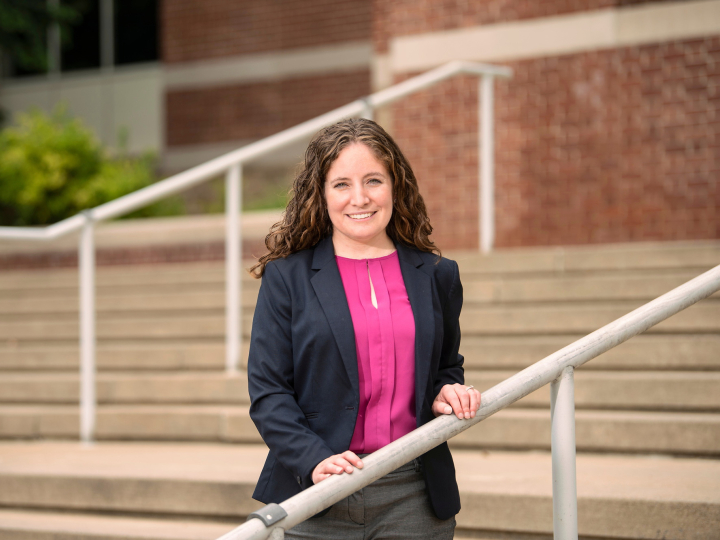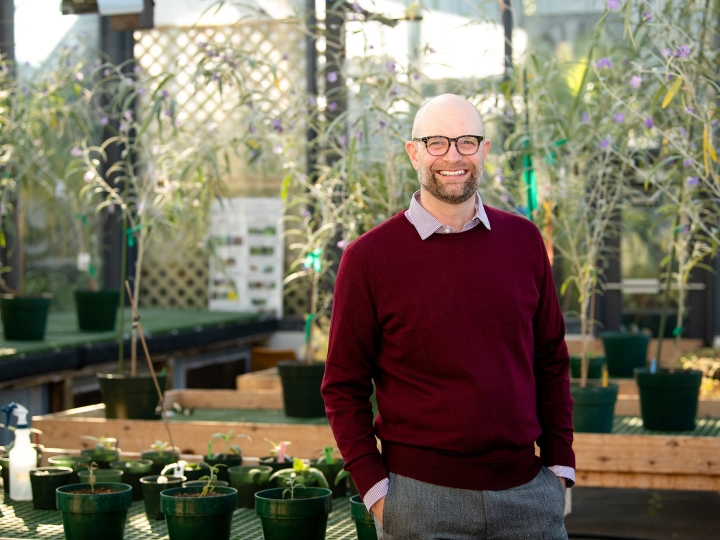
Bucknell Researchers Publish Paper on Protective Value of Previous Infection
March 7, 2023
Professor Moria Chambers, biology. Photo by Brett Simpson
During the COVID-19 pandemic, much of the public health discussion on how to protect the masses centered on building resistance and tolerance to the virus. Now a Bucknell University research team has published a new study that finds a previous bacterial infection increases both their tolerance and resistance to later infection in fruit flies, with higher doses of the earlier infection providing greater protection.
The study's authors include former and current biology students Abigail Wukitch '22, who now works for the National Institutes of Health; Francesco Satriale '19, Alexa Patel '22, Grace Ginder '25, and Emily Van Beek '21; former mathematics student Madyline Lawrence '21; and Professor Owais Gilani,

Professor Owais Gilani, mathematics. Photo by Douglas Kilpatrick
mathematics; and Professor Moria Chambers, biology. The study appears in Infection and Immunity, a medical journal published by the American Society for Microbiology.
"While flies don't have the B and T cells that humans have in their memory response to infection, they do have innate immune systems that are really similar to humans, which means they can detect bacteria and viruses using similar proteins," Chambers says. "The thing that we’ve learned from these insects is that even though they're missing the B and T cells that we associate with [infection] memory, they are still able to learn from their experiences. They still experience future infections differently than when they get an infection for the first time. So we're looking at what these other mechanisms are that influence their response to infection."
The researchers used genetically identical fruit flies housed in Chambers' biology lab. When they were five to seven days old, half were given a bacterial infection, while the other half received a sterile saline solution. Students trained on how to inject the flies so they survived the initial infection.
After a week, both groups were given a second infection. The group that was previously infected survived longer with the second infection.
"When I got here to Bucknell, one of the first things I wanted my undergraduate researchers to help tackle was what is causing this phenomenon [surviving longer]," says Chambers, who started researching chronic infection's effect on secondary infection as a post-doctoral researcher at Cornell University. "We're asked if the flies are protected through increasing resistance — which is something our bodies do to kill pathogens or stop them from being able to multiply — or tolerance, which includes things like how we repair our bodies during the infection. And it turns out, it's a little bit of both."
The researchers wrote that the protective effect of the previous infection is particularly robust and persists at a wide range of infectious doses.
Their study found that protective doses corresponded with significantly increased diptericin — an antimicrobial peptide gene which likely explained the increased resistance. Increased tolerance is likely due to other alterations in organismal physiology in the response to the initial infection.
According to Chambers, there are some parallels to human health that can be drawn from these findings.
"One of the parallels we think about — and it's a bit of a loose connection — is how we think of gut bacteria and the role of having healthy bacteria that normally helps us process our food," she says. "They are constantly helping to stimulate the immune response at a low level and that protects you against pathogens that might cause harm.
"The other thing, in terms of human health, is we are constantly being infected by different things, and sometimes we think that we cleared that infection and moved on. But in reality, there are a number of infections that once you have them, they will persist with you for the rest of your life — like the virus that causes chickenpox can reactivate as shingles," she adds.
Bucknell researchers are continuing research on the fruit flies' infection resistance from antimicrobial peptides. In collaboration with Professor Sarah Smith, chemistry, they are studying how small changes in sequence impact the structure and antimicrobial properties of insect antimicrobial peptides with the long-term goal of learning how these might be useful for potential human clinical applications.

